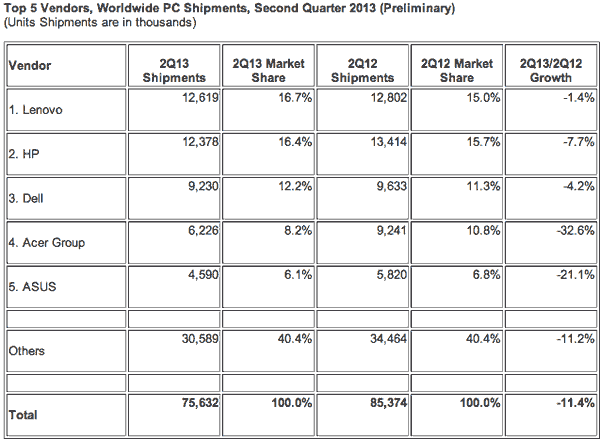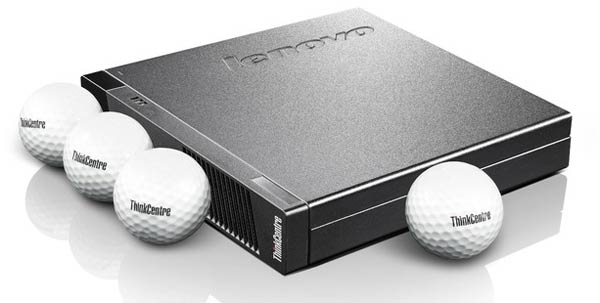In a new report market research firm Gartner has said that global shipments of PCs fell 10.9 per cent during Q2 2013. Similarly figures put out by research firm IDC, on Wednesday, pointed to a PC market shrinkage of 11.4 per cent. The latest figures are evidence of the fifth straight quarterly decline in a row, which makes this the longest decline in the history of the PC. Most of the reduction in PC popularity is put down to the ascendancy of the tablet market and the failure of touchy-feely Windows 8 to avert that.
Gartner analyst Mikako Kitagawa explained "We are seeing the PC market reduction directly tied to the shrinking installed base of PCs, as inexpensive tablets displace the low-end machines used primarily for consumption in mature and developed markets." More optimistically, analyst Jay Chou wrote in IDC's report that "With second-quarter growth so close to forecast, we are still looking for some improvement in growth during the second half of the year."

The new league tables of PC sellers from IDC shows that PC makers sold 75.6 million PCs in Q2 2013, whereas in the same quarter last year 85.4 million were sold. Drilling down the figures we see that Lenovo has taken the crown from HP and become the world's leading PC maker with a share of 16.7 per cent of the market. With respect to PC shipments Acer and ASUS have fared particularly badly in the last year.

Now that we have started the second half of the year, are there some new compelling reasons to upgrade your current PC? There's a lot of hardware and software action taking place in the coming months. More and more PC makers are updating their laptops with Intel's new Haswell processors. These Haswell laptops promise a lot more battery stamina from your portable computer, a pretty important and enticing statistic. Also we have Windows 8.1 becoming available in the next couple of months, this might attract people to upgrade as the end of the security updates for Microsoft Windows XP systems looms on the horizon.
Many of the PC makers have developed tablets of various kinds for the first time during the last year, with varying degrees of success, so bets have been hedged for many manufacturers.













